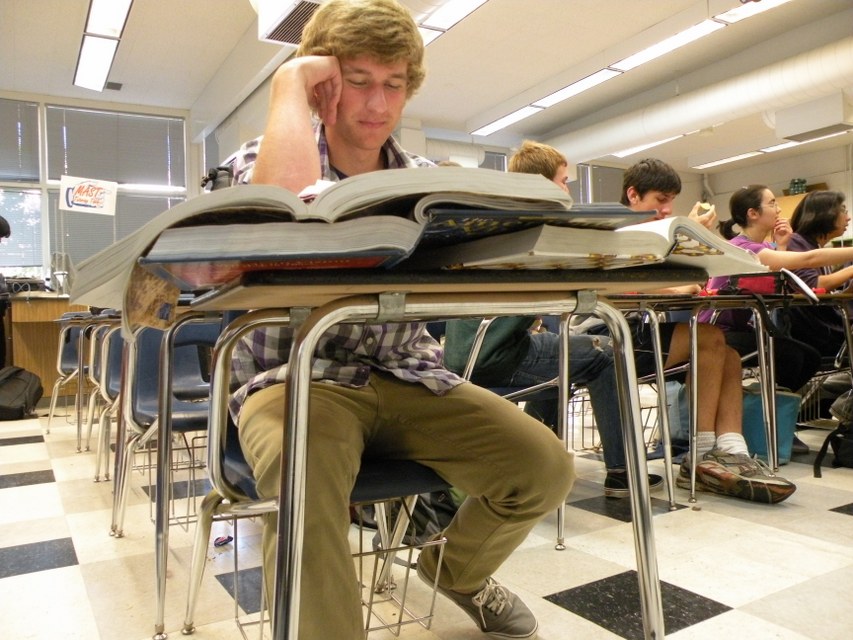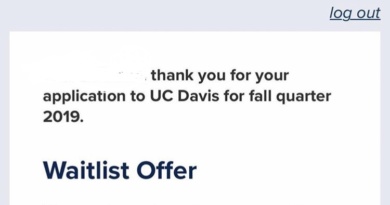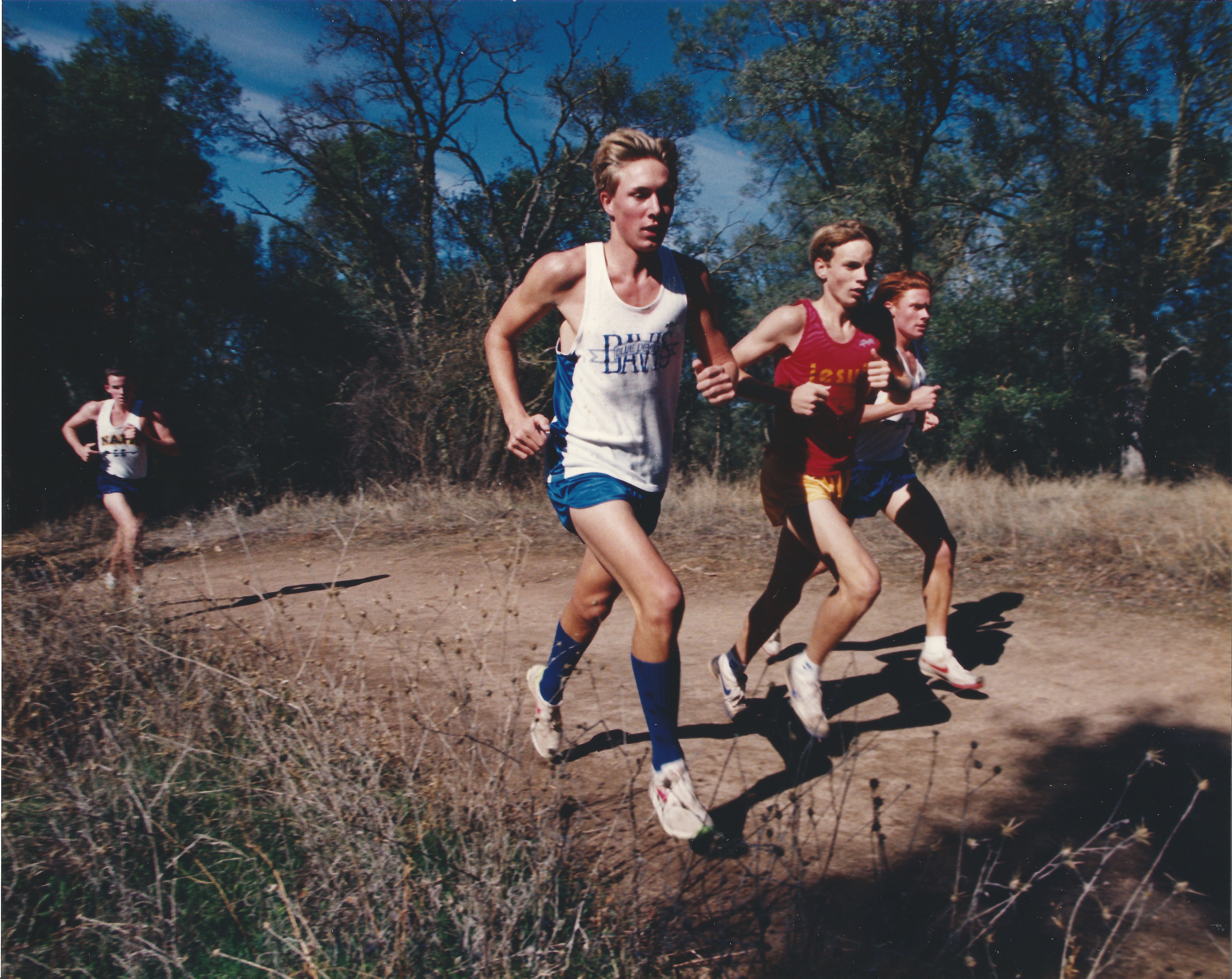Students lose sleep over AP classes
In the sound-proof walls of the large conference room in the DHS library, three students are studying for their classes. Their bent backs curve over the tables as they look back and forth from books, worksheets and homework assignments. Senior Lillian Krovoza glances at the clock and looks shocked. “We’ve been in here for four hours?!”

There are 18 different types of Advanced Placement classes offered at DHS. These classes are conducted at a collegiate level of learning, and go into greater depth than normal courses.
Karl Ronning, who teaches AP Statistics at DHS, classified two groups of AP students: Those who are genuinely interested in the subject matter, and those who take them to raise their grade point averages.
If there were a mandatory limit on the amount of AP classes students would be permitted to take, Ronning said it would help those who feel pressured to take them but are not ready.
“But some students are very academic and organized and are ready for that load,” Ronning said.
Senior Alex Young is taking three AP and two honors classes this year. In addition, he is an editor for the school newspaper and participates in the varsity debate team.
Before Young took AP classes, he played piano and baseball, hobbies he found enjoyable. Young stopped playing both around AP test times.
“It’s about getting into college, it’s not about having fun,” Young said.
“Failing to pursue a rigorous curriculum would make a student compare less favorably to the many other applicants we evaluate each and every year,” said John O. Gaines, director of undergraduate admissions at Vanderbilt University.
According to Gaines, Vanderbilt University admitted just 17.9% of all first-year freshman applicants last year.
Senior David Gygi said he feels pressure to be competitive for college. Gygi is the president of the California Scholarship Federation club, and is taking four AP classes.

“David is literally the senior class tutor,” Krovoza said. Gygi whipped out his phone and read off his recent calls list. The list is packed with endless names of students that call him for homework help.
“I manage my time very poorly, and get a maximum of five hours of sleep every night,” Gygi said.
Some high school students work, like Krovoza, who has two part-time jobs and regularly volunteers. She is taking three AP classes this year.
Krovoza’s school day ends earlier than seventh period, but she stays in the library and studies until it is time to go to work or cook dinner at home.
“I feel a lot of pressure to do well, but it‘s not a bad kind of pressure,” Krovoza said.
Robotics team member Dean Braeman knows AP classes increase his chances of getting into college, but during the second semester of the year, Braeman said the Robotics team must commit about 20 hours a week.
“I’m gonna kinda blow off school for a bit,” Braeman said.
According to Nancy G. McDuff, admissions vice president at the University of Georgia, standardized test scores are secondary to high school leadership, service, and overall performance.
These factors also count at Vanderbilt, “We practice what is called holistic admissions,” Gaines said. Holistic admissions look at all the student‘s achievements, not only GPA, into account when granting admission.
A few students take only AP classes. Senior Danny Pugh is one of them. Pugh described his daily routine: Go to school, get home and “hit the books early.”
“I have stress all the time, sometimes I have to drink raw eggs [instead of a meal] to save time,” Pugh said.
Pugh’s goal is to be able to box for Yale University, and he said that although the advanced curriculum is tiring, he is doing it to look good for colleges.
Senior Abulu Hsieh already completed Calculus BC his junior year, and is in the Math and Science Tutors club. He is taking four AP classes this year.
Hsieh has late hours of homework and says it gets overwhelming at times, but he claims he chose to take advanced classes to challenge himself.
“I prefer to be frustrated rather than bored,” Hsieh said.



